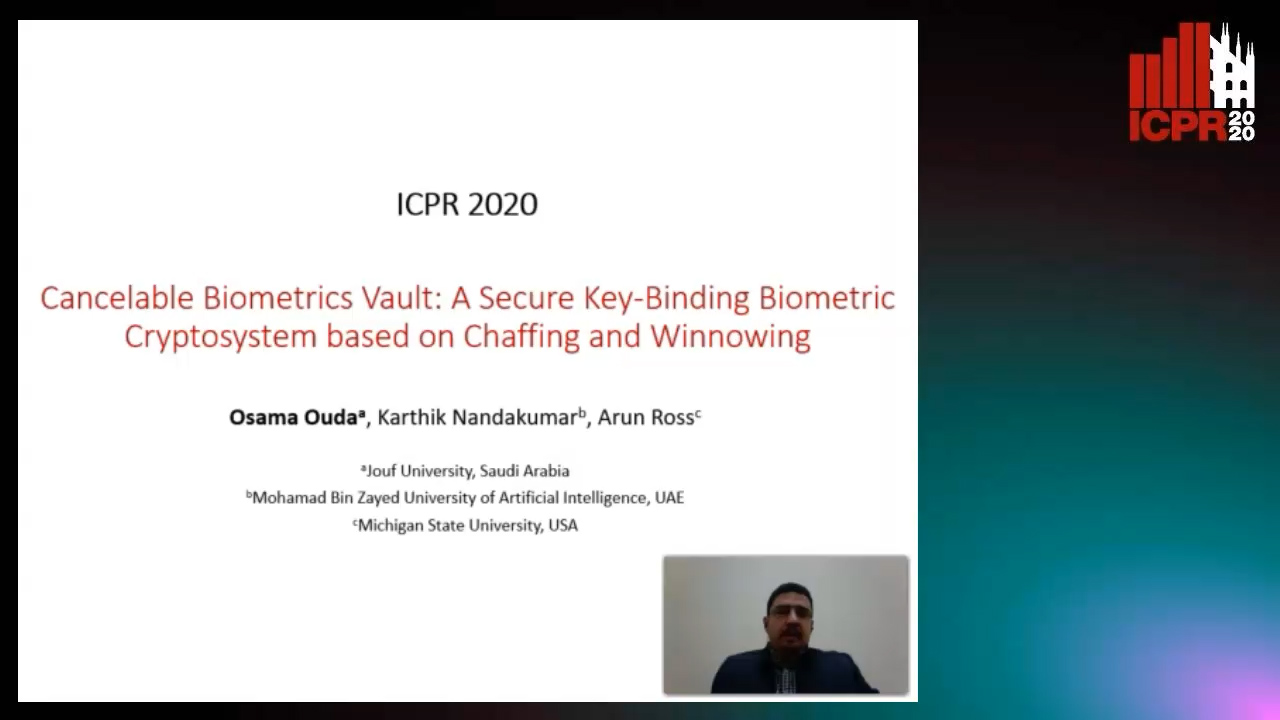Karthik Nandakumar
Paper download is intended for registered attendees only, and is
subjected to the IEEE Copyright Policy. Any other use is strongly forbidden.
Papers from this author
Cancelable Biometrics Vault: A Secure Key-Binding Biometric Cryptosystem Based on Chaffing and Winnowing
Osama Ouda, Karthik Nandakumar, Arun Ross

Auto-TLDR; Cancelable Biometrics Vault for Key-binding Biometric Cryptosystem Framework
Abstract Slides Poster Similar
Existing key-binding biometric cryptosystems, such as the Fuzzy Vault Scheme (FVS) and Fuzzy Commitment Scheme (FCS), employ Error Correcting Codes (ECC) to handle intra-user variations in biometric data. As a result, a trade-off exists between the key length and matching accuracy. Moreover, these systems are vulnerable to privacy leakage, i.e., it is trivial to recover the original biometric template given the secure sketch and its associated cryptographic key. In this work, we propose a novel key-binding biometric cryptosystem framework, referred to as Cancelable Biometrics Vault (CBV), to address the above two limitations. The CBV framework is inspired by the cryptographic principle of chaffing and winnowing. It utilizes the concept of cancelable biometrics (CB) to generate secure biometric templates, which in turn are used to encode bits in a cryptographic key. While the CBV framework is generic and does not rely on a specific biometric representation, it does assume the availability of a suitable (satisfying the requirements of accuracy preservation, non-invertibility, and non-linkability) CB scheme for the given representation. To demonstrate the usefulness of the proposed CBV framework, we implement this approach using an extended BioEncoding scheme, which is a CB scheme appropriate for bit strings such as iris-codes. Unlike the baseline BioEncoding scheme, the extended version proposed in this work fulfills all the three requirements of a CB construct. Experiments show that the decoding accuracy of the proposed CBV framework is comparable to the recognition accuracy of the underlying CB construct, namely, the extended BioEncoding scheme, regardless of the cryptographic key size.